The U.S. National Science Foundation is at the forefront of advances in sustainable chemistry that help propel economic growth, protect the environment and human health, and revolutionize how chemistry and materials research are done.
From harnessing light and electricity to drive chemical reactions to developing biodegradable plastics to addressing environmental pollution, NSF investments in sustainable chemistry promote discovery and innovation in fields as diverse as manufacturing, electronics, clean energy, agriculture and medicine.
 Table of Contents
Table of Contents
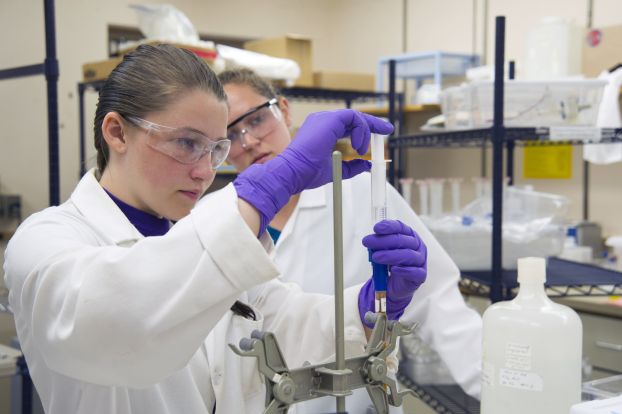
What is sustainable chemistry?
Sustainable chemistry refers to the discovery and design of new chemicals and chemical processes that are readily available and renewable, operate efficiently, employ renewable energy sources and generate minimal waste. Sustainable chemistry practices benefit human and environmental health, reduce greenhouse gas emissions, minimize waste and avoid resource depletion.
These practices offer economic benefits by providing new market opportunities, enhancing supply chain resilience and increasing efficiency of energy and natural resource use. They also have profound societal benefits by minimizing unintended impacts on human health and the environment and ensuring equity in hazard prevention and remediation and in access to resources and opportunities.
What we support
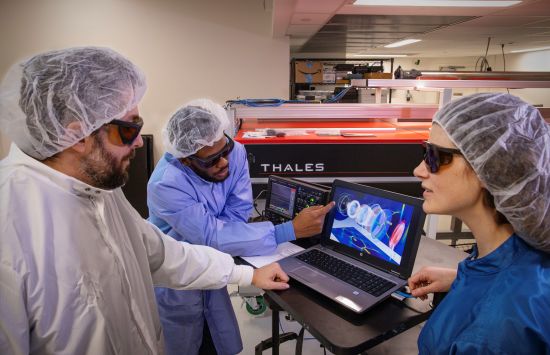
Fundamental research
We support research to design and discover new chemical products and materials, explore and improve chemical processes and technologies, use resources more efficiently and minimize environmental harm, waste products and the use of toxic substances.
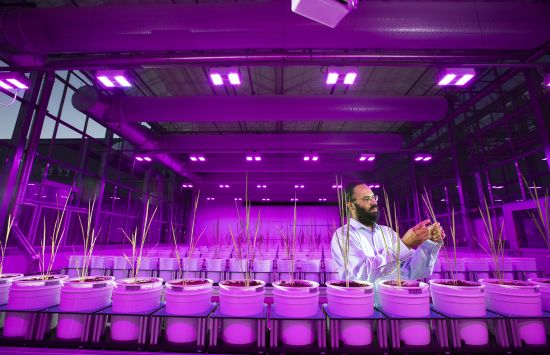
Use-inspired research
We support the development and production of safe and efficient materials, chemicals, fuels and other products and processes for scientific and societal benefit.
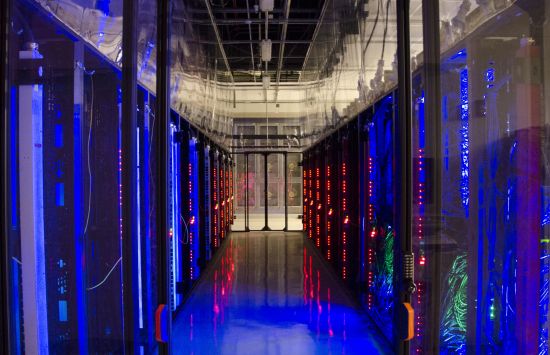
Research infrastructure
We support the development of computing and physical infrastructure necessary to generate fundamental knowledge and advance sustainable chemistry technologies.
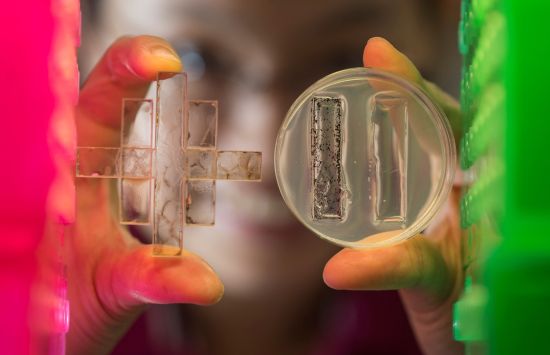
Education and workforce development
We support the creation of a diverse, innovative workforce ready to advance knowledge and application of sustainable chemicals, materials and processes.
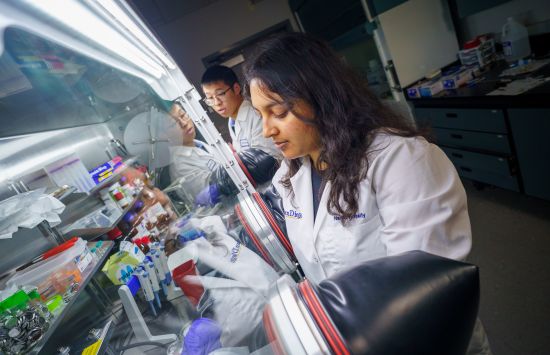
Partnerships
We partner with other federal agencies; state, local and tribal governments; industry; nonprofit organizations; and educational institutions. Partnerships share data, tools, expertise and other resources, strengthen workforce development and translate research into products and services to address societal needs.
Research centers
NSF Centers for Chemical Innovation (NSF CCI)
NSF CCIs are research centers focused on major, long-term chemical research challenges. Current CCIs that incorporate sustainable chemistry include:
- NSF Center for Sustainable Polymers, aiming to transform how plastics are made.
- NSF Center for Sustainable Nanotechnology, conducting research on nanoparticles to enable sustainable development of nanotechnology for societal benefit.
- NSF Center for Synthetic Organic Electrochemistry, working to develop electrosynthetic techniques that are green, safe and economical.
- NSF Center for the Mechanical Control of Chemistry, seeking to understand and develop methods for solvent-free chemistry driven by mechanical force.
- NSF Center for Computer-Assisted Synthesis, working to enhance the predictability and effectiveness of synthetic chemistry.
NSF Engineering Research Centers (NSF ERC)
ERCs are interdisciplinary centers located at universities throughout the U.S., each in close partnership with industry. Examples of sustainable chemistry-focused ERCs are:
- NSF ERC for Carbon Utilization Redesign through Biomanufacturing-Empowered Decarbonization, working to curb CO2 emissions and decrease the ecological footprint of U.S. manufacturing systems.
- NSF Environmentally Applied Refrigerant Technology Hub, an ERC creating a sustainable refrigerant lifecycle that reduces emissions from refrigerants and increases energy efficiency of heating, ventilation and cooling.
- NSF ERC for Advancing Sustainable and Distributed Fertilizer Production, developing next-generation, modular, distributed and efficient technology for capturing, recycling and producing decarbonized nitrogen-based fertilizers.
NSF Global Centers (NSF GC)
- Sustainable, Resilient, Responsible Global Minerals Supply Chain, strengthening a minerals supply chain that is socially and environmentally responsible.
- Developing Solutions to Decarbonize Emissions and Fuels, exploring carbon capture, blue hydrogen and green hydrogen as pathways to global decarbonization.
NSF Industry-University Cooperative Research Centers (NSF IUCRC)
The NSF IUCRC program facilitates partnerships among industry, academic teams and government agencies to conduct high-impact research, enhance U.S. global leadership in technological development, and develop a diverse, skilled workforce. Centers that incorporate sustainable chemistry include:
- Center for Concrete Advancement Network, developing new technologies to produce concrete that is more efficient, more rapidly deployable and less natural resource dependent.
- Center for Rational Catalyst Synthesis, working towards a more rational and streamlined approach to catalyst development.
- Center for Bioplastics and Biocomposites, developing high-value products from agricultural and forestry feedstocks.
- Center for a Solar Powered Future, conducting pre-competitive research for the solar power industry, with a goal of achieving a zero carbon footprint by 2050 using solar energy as a resource.
- Building Energy Smart Technologies Center, using an integrated systems approach to design, retrofit, construct and operate sustainable buildings and cities.
- Center for Environmental Sustainability through Insect Farming, developing novel methods to use insects as a sustainable alternative for feed and food production.
- Center for Resource Recovery and Recycling, advancing technologies that recover, recycle and reuse materials throughout the manufacturing process.
NSF Materials Research Science and Engineering Centers (NSF MRSEC)
MRSECs are university-based, multidisciplinary research centers that provide the resources and interdisciplinary environment needed for materials research activities of ambitious scope and complexity, including the development of sustainable materials and other efforts related to sustainable chemistry such as new materials enabling more efficient electronics and cleaner energy production.
NSF Regional Innovation Engines (NSF Engines)
The NSF Engines program creates multi-sector, regional-scale coalitions to advance key technologies and address societal challenges. Current Engines focusing on sustainable chemistry include:
- North Carolina Textile Innovation and Sustainability Engine, aiming to advance U.S. capacity for environmentally sustainable textiles.
- Louisiana Energy Transition Engine, working to advance research and commercialization efforts that promote decarbonization.
NSF Science and Technology Centers (NSF STC)
These centers provide large-scale, long-term support for innovative, complex research and education projects in any discipline supported by NSF.
The Science and Technologies for Phosphorus Sustainability Center conducts research aimed at reducing human dependence on mined phosphates and reducing phosphorus losses to soil and water resources.
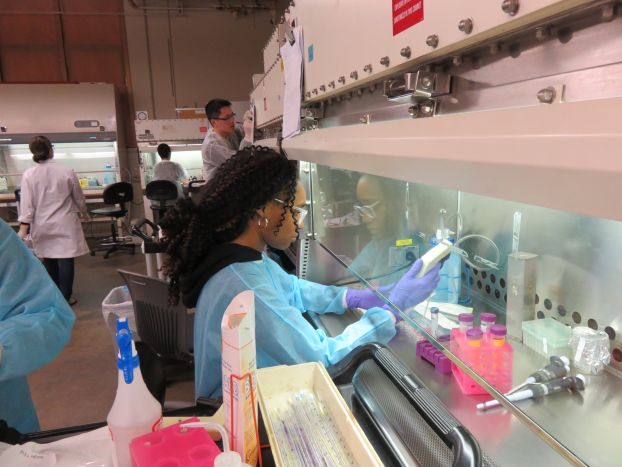
Featured funding
Invites proposals for collaborative projects between teams in the U.S. and France to conduct research in homogeneous catalysis with Earth-abundant elements, with a focus on developing more sustainable catalysts and catalytic strategies.
Convergence Accelerator
Supports multi-disciplinary research and facilitates cross-team collaborations that lead to discovery and solutions with sustainable, national-scale impact.
Critical Aspects of Sustainability
Supports research to improve the sustainability and safety of resources used to meet human needs. This metaprogram invites proposals in any research area supported by participating divisions.
Critical Aspects of Sustainability: Micro- and Nanoplastics
Encourages proposals to improve fundamental understanding of micro- and nano-plastic characterization; behavior; reactivity in the environment; elimination from land and water systems; and impact on animal and human health.
Critical Aspects of Sustainability: Innovative Solutions to Climate Change
Encourages proposals focused on developing novel approaches to climate change mitigation and adaptation.
Critical Aspects of Sustainability: Innovative Solutions to Sustainable Chemistry
Invites proposals focused on improving the efficiency with which resources are used to produce chemical products and materials while reducing the use of hazardous substances and the generation of waste.
ECosystem for Leading Innovation in Plasma Science and Engineering: Special Focus on PFAS and Microelectronics
Encourages proposals to use plasma science and engineering to address the removal of per- and polyfluoroalkyl substances (PFAS) from the environment and develop more efficient methods for microelectronics fabrication.
Funding Opportunities for Engineering Research to Achieve Net-Zero Climate Goals by 2050
Encourages proposals for research and education activities that work towards reaching net-zero climate goals and creating a circular economy.
Future Manufacturing: Eco Manufacturing Research
Supports research that enables manufacturing processes that account for energy consumption, health and environmental impact and cost effectiveness through the entire manufacturing lifecycle.
Molecular Foundations for Sustainability: Sustainable Polymers Enabled by Emerging Data Analytics program
Supports cross-disciplinary research and workforce development to promote discovery and manufacturing of new sustainable polymers or sustainable pathways to existing polymers using state-of-the-art data science.
Non-Academic Research Internships for Graduate Students in Hydrogen and Fuel Cell Technologies Supplemental Funding Opportunity
This opportunity supports supplemental funding for graduate students to gain knowledge, skills, training and experiences in hydrogen and fuel cell technologies and application.

